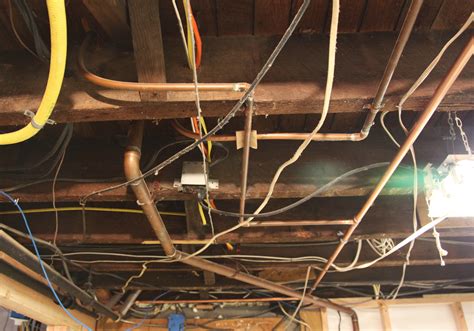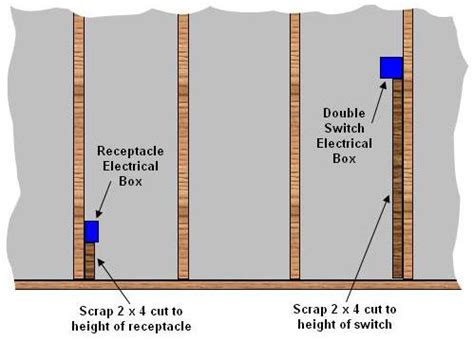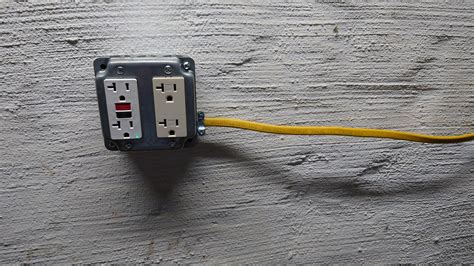electrical box for unfinished basement Ultimately, you can use any electrical box that suits you, especially if you haven’t yet chosen the type of cable you will use. However, you have to take the hazards in your unfinished basement into account. Unfinished basements are damp. . About Press Copyright Contact us Creators Advertise Developers Terms Privacy Policy & Safety How YouTube works Test new features NFL Sunday Ticket Press Copyright .
0 · unfinished basement electrical wiring
1 · nec basement outlet box
2 · electrical outlet box for unfinished basement
3 · box for unfinished basement
4 · best box for unfinished basement
5 · basement outlet box replacement
6 · basement outlet box
7 · basement electrical outlets
Types of CNC Machine – In the Computer Numerical Control (CNC) machining process, production equipment and tools are moved according to pre-programmed computer software. The procedure may be used to operate a variety of complicated machinery, including mills, CNC routers, lathes, and grinders.
It's required by NEC 2008 in an unfinished basement unless the outlet is dedicated to a security or fire alarm system. You may also want to go with a 20A to give you plenty of flexibility with how you're able to use it in the future (larger . Unfinished basements utilize NM or SE cables, which are suitable for damp locations, while finished basements can use a variety of cables (same as for the rest of the house). There are situations in which the cables require .
How and where you must position your electrical outlets in a basement depends on whether the area is finished, unfinished, and what you are using the space for. You must .
heavy duty metal shelf bracket
How to Install Basement Electrical Wiring. Fully Explained Photos and Wiring Diagrams for Basement Electrical Wiring with Code Requirements for most new or remodel projects. Home electrical wiring includes 110 volt outlets and 220 .Ultimately, you can use any electrical box that suits you, especially if you haven’t yet chosen the type of cable you will use. However, you have to take the hazards in your unfinished basement into account. Unfinished basements are damp. . Running electrical wires in an unfinished basement ceiling can be a great way to add extra electrical outlets without needing to make permanent alterations to your home. This method is relatively simple and can save you . Option One: If you have an unfinished basement, you can tap into a junction box in the basement and run the cable out through the rim joist. This is even easier than tapping into a main floor outlet. Plus it allows you to put your .
In this post, we’ll provide detailed instructions on how to safely run electrical wires throughout your home, from planning and organizing all the materials you’ll need, choosing appropriate protective coverings or insulation .
unfinished basement electrical wiring
It's required by NEC 2008 in an unfinished basement unless the outlet is dedicated to a security or fire alarm system. You may also want to go with a 20A to give you plenty of flexibility with how you're able to use it in the future (larger power tools, sump pump, etc.). If you need to run electrical wire in an unfinished basement, make sure to make all the necessary preparation, this guide tell you how to finish this project.

Unfinished basements utilize NM or SE cables, which are suitable for damp locations, while finished basements can use a variety of cables (same as for the rest of the house). There are situations in which the cables require extra protection from the elements or physical damage. How and where you must position your electrical outlets in a basement depends on whether the area is finished, unfinished, and what you are using the space for. You must consider the minimum number of required receptacle outlets, including those for appliances, the height requirements, the spacing requirements, and circuit protection devices.
By creating a detailed wiring plan, gathering the necessary materials and tools, and meticulously following the steps outlined in this article, you can successfully run electrical wire in your unfinished basement ceiling while adhering to electrical codes and regulations.
How to Install Basement Electrical Wiring. Fully Explained Photos and Wiring Diagrams for Basement Electrical Wiring with Code Requirements for most new or remodel projects. Home electrical wiring includes 110 volt outlets and 220 volt outlets and receptacles which are common place in every home.Ultimately, you can use any electrical box that suits you, especially if you haven’t yet chosen the type of cable you will use. However, you have to take the hazards in your unfinished basement into account. Unfinished basements are damp. You need a .
Running electrical wires in an unfinished basement ceiling can be a great way to add extra electrical outlets without needing to make permanent alterations to your home. This method is relatively simple and can save you time, money, and hassle while still providing the proper safety protocols for your wiring.
Option One: If you have an unfinished basement, you can tap into a junction box in the basement and run the cable out through the rim joist. This is even easier than tapping into a main floor outlet. Plus it allows you to put your new outlet anywhere, not . In this post, we’ll provide detailed instructions on how to safely run electrical wires throughout your home, from planning and organizing all the materials you’ll need, choosing appropriate protective coverings or insulation products used to decorate other items, understanding the process of connecting everything together correctly along with s.It's required by NEC 2008 in an unfinished basement unless the outlet is dedicated to a security or fire alarm system. You may also want to go with a 20A to give you plenty of flexibility with how you're able to use it in the future (larger power tools, sump pump, etc.).
If you need to run electrical wire in an unfinished basement, make sure to make all the necessary preparation, this guide tell you how to finish this project. Unfinished basements utilize NM or SE cables, which are suitable for damp locations, while finished basements can use a variety of cables (same as for the rest of the house). There are situations in which the cables require extra protection from the elements or physical damage.
heavy gauge steel file cabinets
How and where you must position your electrical outlets in a basement depends on whether the area is finished, unfinished, and what you are using the space for. You must consider the minimum number of required receptacle outlets, including those for appliances, the height requirements, the spacing requirements, and circuit protection devices. By creating a detailed wiring plan, gathering the necessary materials and tools, and meticulously following the steps outlined in this article, you can successfully run electrical wire in your unfinished basement ceiling while adhering to electrical codes and regulations.How to Install Basement Electrical Wiring. Fully Explained Photos and Wiring Diagrams for Basement Electrical Wiring with Code Requirements for most new or remodel projects. Home electrical wiring includes 110 volt outlets and 220 volt outlets and receptacles which are common place in every home.Ultimately, you can use any electrical box that suits you, especially if you haven’t yet chosen the type of cable you will use. However, you have to take the hazards in your unfinished basement into account. Unfinished basements are damp. You need a .

Running electrical wires in an unfinished basement ceiling can be a great way to add extra electrical outlets without needing to make permanent alterations to your home. This method is relatively simple and can save you time, money, and hassle while still providing the proper safety protocols for your wiring. Option One: If you have an unfinished basement, you can tap into a junction box in the basement and run the cable out through the rim joist. This is even easier than tapping into a main floor outlet. Plus it allows you to put your new outlet anywhere, not .
nec basement outlet box
electrical outlet box for unfinished basement

heavy metal band lunch box
box for unfinished basement
Typical welding parameters for MIG welding using 0.025 inches (0.6 mm) and 0.030 inches (0.8 mm) wire are given in the below table. When welding 20 gauge sheet, use welding current around 30-35 ampere with a gas flow rate of 15-20 CFH. The shielding gas mixture of Ar+Co2 (80% argon to 20% carbon dioxide) shall be used.
electrical box for unfinished basement|nec basement outlet box